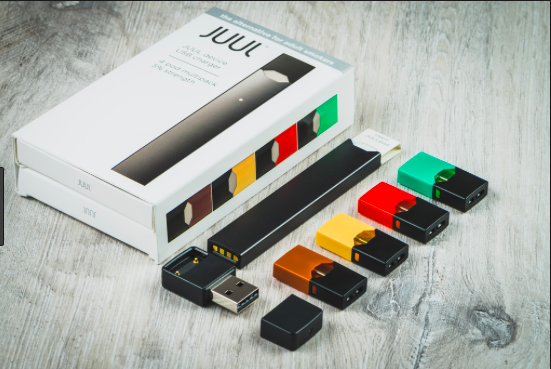Will Proposition C, Juul’s ballot measure to overturn the city’s e-cigarette ban, also have the effect of overturning the ban on flavored e-cigarettes, passed unanimously by the supes and ratified overwhelmingly by voters last year?
That’s the legal question at the heart of a lawsuit Juul filed in San Francisco Superior Court on Friday challenging the wording that will appear in the city’s voter guide summarizing their measure.

After deliberating for more than six hours, the Ballot Simplification Committee – a little-known group of volunteers tasked with summarizing every ballot measure at an eighth-grade reading level – chose to include a sentence suggested by the City Attorney’s Office saying Juul’s proposition “may repeal other City laws that apply to electronic cigarettes, including the City law that prohibits the sale of flavored electronic cigarettes.”
Juul has called that nonsense.
Parker Kasmer, an attorney for Juul, told the Ballot Simplification Committee during the appeals process two weeks ago the company never intended their measure to overturn the flavor ban. The committee didn’t find Juul’s arguments to be persuasive, and voted to leave the language in place.
The lawsuit filed Friday claims that by including language the measure “may” overturn the flavor ban, the ballot summary the committee produced is “false” and “misleading.” It also alleges that City Attorney Dennis Herrera is an opponent of Juul’s initiative, and not impartial.
“It strains the utmost bounds of plausibility to imagine that if the Initiative is ultimately successful in being adopted by the voters that the City Attorney’s office will take the position after the election that the flavor ban is no longer in effect,” the lawsuit said. “The cagey ‘may repeal’ language allows repeal to be threatened by opponents of the Initiative before the election, as a cudgel, then disclaimed by them afterwards, if the Initiative prevails.”
John Coté, a spokesperson for the City Attorney’s office, dismissed Juul’s claims as “unfounded.”
Help us save local journalism!
Every tax-deductible donation helps us grow to cover the issues that mean the most to our community. Become a 48 Hills Hero and support the only daily progressive news source in the Bay Area.
“Juul is simply wrong in saying City Attorney Herrera has publicly taken a position on its ballot measure. He hasn’t,” Coté said. “The work our office produced reflected our best professional judgment, and we stand by it unequivocally.”
Matt Dorsey, a spokesperson for San Francisco Kids vs. Big Tobacco, an organization that opposes Juul’s measure, said every attorney he’s spoken with who has examined the text of the proposition has told him they believe it would overturn the flavor ban.
The ballot measure would insert language in the health code to “comprehensively authorize and regulate” e-cigarettes, the text of the proposition reads. While Juul disagrees, some attorneys say that “comprehensive” language may be interpreted to mean other parts of the health code, outlawing flavored tobacco products, would no longer apply to e-cigarettes. Other forms of flavored tobacco, such as flavored cigars, would still be banned.
“Preemption is a long-standing part of the big tobacco playbook to undo public health policy,” Dorsey said. “In initiative democracy, the obligation of clarity is on the proponent. They had every opportunity to clearly define what this law does and does not do, and the one thing they’re clear on is it ‘comprehensively authorizes and regulates’ electronic cigarettes. That’s preemption language.”
The court is expected to hear the case in the coming weeks, in time for the Department of Elections to start printing the voter guide in mid-September. But the legal question may not ultimately be decided unless Juul’s measure passes, and a company once again tries to sell flavored e-cigarettes in San Francisco.





